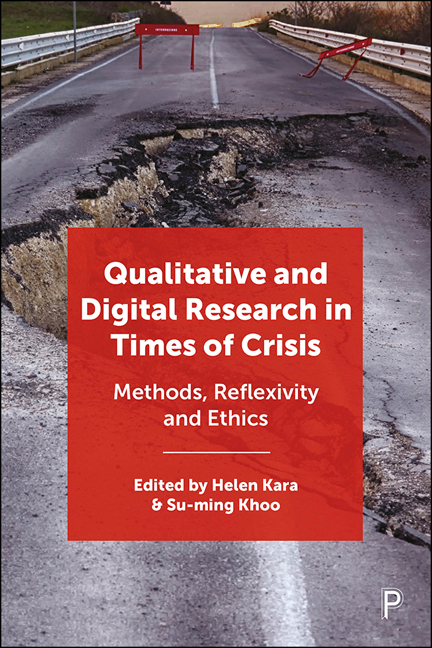15 - Beyond extraction: co-creating a decolonial and feminist research practice in post-conflict Guatemala
Published online by Cambridge University Press: 13 May 2022
Summary
Narrations of extraction between North and South are permeated with necessarily troubling metaphors of predatory, life-sucking, monstrosities of ethnographic infestations and extraction from populations in crises. Thinking with such monstrous figures, this chapter explores the potential of research to contribute to or diverge from the continuum of (neo)colonial dispossession, expropriation, and extraction of land, resources, bodies, and knowledges. Reflecting on previous ‘field experience’ and centring the ethical concerns of undertaking ethnography in Guatemala as part of a PhD programme funded from Ireland, I seek to problematise the ways of doing research in the Global South while positioned at a university in the Global North. Specifically, I explore the ethics of embarking on research in the post-colonial, post-conflict context of Guatemala. I question how the neoliberal dynamics embedded in universities of the Global North privilege the metrics of production and publication, fostering a culture where data harvesting/mining, and knowledge extraction from the Global South to the Global North not only persists, but is encouraged (Connell, 2014; Burman, 2018; Cruz and Luke, 2020).
I am particularly attentive to the ethical and methodological challenges of conducting research on sexual and racial violence in contexts where data extraction from victim/survivors of genocide and conflict-related sexual violence (CRSV) has, to a large extent, characterised the relationship between the researcher and the researched. Understanding research as another form of intervention that has the potential, not only to do harm, but also to perpetuate the dynamics of exploitation in the Global South, critical post/de/anti-colonial scholars are increasingly insisting on a reflexive ethics which probes the (neo)colonial dynamics of knowledge extraction and production (Cruz and Luke, 2020; Bilgen, Nasir, and Schöneberg, 2021). Their ethical concerns around North– South research dynamics go much further than the bureaucratic form of ethics approval required by Institutional Review Boards (IRBs) or Research Ethics Committees (RECs) (Detamore, 2010; Lai, 2020; Millora, Maimunah, and Still, 2020).
Finally, I problematise the imaginary of the field, as ‘elsewhere’ and ‘other’, and the potential for fieldwork in contexts of crises or sustained and persistent conflict to reproduce a (neo)colonial othering. Centring researcher positionality and reflexivity through a politically engaged and relationally entangled (auto)ethnography, I seek to ground my research in decolonial and feminist ethics.
- Type
- Chapter
- Information
- Qualitative and Digital Research in Times of CrisisMethods, Reflexivity and Ethics, pp. 235 - 246Publisher: Bristol University PressPrint publication year: 2021

